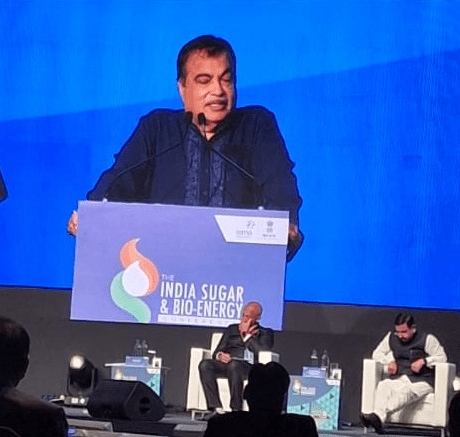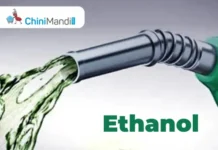India is working on plan of blending diesel with isobutanol instead of ethanol, following unsatisfactory results from initial ethanol-diesel trials, Union Road Transport and Highways Minister Nitin Gadkari said on Thursday.
Addressing the India Sugar and Bio-Energy Conference, Gadkari reaffirmed the government’s commitment to expanding biofuel adoption as part of its broader clean energy strategy and efforts to enhance farmers’ income.
“We tried ethanol with diesel, but the results were not satisfactory,” Gadkari said, adding that isobutanol is now being tested as an alternative biofuel for diesel blending.
ARAI (Automotive Research Association of India) is doing the experiments and working on addding 10% of isobutanol to diesel.
While ethanol blending in diesel failed to meet expectations, the government has made significant progress on the E20 programme, achieving 20% ethanol blending in petrol, Gadkari said. The next phase, he noted, involves expanding ethanol’s role in producing sustainable aviation fuel to cut reliance on imported crude oil.
Gadkari also highlighted the economic benefits of ethanol production, particularly for India’s farming sector. “Corn farmers have earned significantly because of ethanol blending,” he said, pointing out that India’s surplus production of rice, wheat, sugar, and corn can be converted into biofuels, thereby boosting rural incomes.
He further noted that the ethanol programme had stabilised the sugar industry, which has historically struggled with delayed payments to sugarcane growers. With higher ethanol output, sugar mills are now better positioned to make timely payments, easing financial stress across the sector.
Today, Nitin Gadkari also outlined the Government’s vision for sustainable transportation at 65th Annual Convention of the Society of Indian Automobile Manufacturers (SIAM), stating, “As world’s 3rd largest automobile industry, India needs to focus on providing comfortable public transportation. We will maintain global alignment on BS7 and CAFE norms to address air pollution issues. In addition, moving to bio fuels helps in reducing India’s crude imports and enhances farmer incomes. More than 3 lakh vehicles have been scrapped following the implementation of the scrappage policy, benefiting industry, government, and environment.”
At the conference, industry leaders and policymakers discussed the critical role of sustainable mobility in achieving Viksit Bharat by 2047.
He further stated,” Logistic cost will come down to single digit by year end. Road safety remains crucial. Therefore, public campaigns and NGO engagement is essential to improve human behaviour to prevent accidents. For those aiding road accident victims, Rs. 25,000 will be awarded to ‘Rah-Veers’ in addition to providing insurance up to 1.5 Lacs to accident victims.”


















